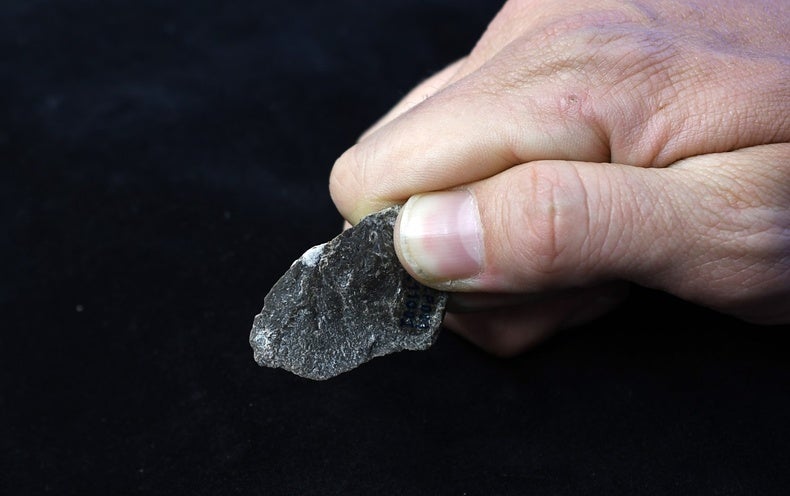It’s obvious to many of us — whether we’re an only child or not — that siblings are often different from each other.
Judy Dunn, emeritus professor of developmental psychology at Kings College London, and Robert Plomin, professor of behavioral genetics at the same institution, were among the first scholars to start empirically questioning why this happens. Drawing from differences they noticed in Dunn’s children, over the past 30 years, they’ve tested siblings’ variations in character and personality.
Finally, it seems they — and other experts in the field — have gotten closer to the answer as to why, even identical twins who live under the same roof, can sometimes end up completely different in character.
How Genetically Similar are Siblings?
Genetics usually predicts how siblings will be different. “Because you and your brother are 50 percent similar genetically, that means you’re also 50 percent different genetically,” says Plomin.
If it were this easy, siblings would be half different and half the same. But genetics isn’t that linear. Not all genes are passed down the same since they experience some reshuffling throughout the reproduction process.
Read More: Identical Twins: Just How Genetically Alike Are They?
Why Do Siblings Look Different?
And not many traits are predicted just by one gene: Even a trait as simple as eye color is dictated by a combination of genes working together. While eye color is actually a result of about 16 different genes mashed up, personality traits are decided by even larger numbers of genes meticulously linking together in varied combinations and formulas. Change even just one gene and the outcome will be completely different. So, personality is less heritable than other traits.
“The more heritable a trait is, like height, the smaller the differences between siblings on average. Weight, again, is surprisingly heritable,” says Plomin. “But siblings are a bit more different when you get to cognitive abilities, which are less heritable than weight and height, and even less similar when it gets to personality and psychopathology.”
Where Does All the Difference Come From?
Genetics help explain the resemblances between siblings, but not so much the differences. Environmental factors can explain the rest. Kids growing up with the same two parents, who go to the same schools, can potentially experience radically different environments, both subjectively and objectively.
“In families, the environment works differently from the way we thought it would because it’s making kids in the same family differ from one another. It’s actually a non-shared environment,” says Plomin. Not to mention any differences that naturally arise from extra-familial relationships: A teacher or a lover, can completely change somebody’s life.
What About Parental Favoritism?
How parents treat their children can also impact their character. A team led by Susan Marie McHale, professor of human development and family studies at Penn State University, argue that already from the get-go, no two siblings can experience their parents in the same phase of their lives, be it romantic, financial or personal.
As the first or second child, perspectives can easily shift and research has shown this isn’t systematic. Not all older siblings have certain traits – they simply have different experiences because they are older.
Character differences in children elicit character differences in their caregivers. “We find that when parents have children of mixed sex, like a boy and girl, they’re more likely to believe that their children are more influential in how they’re treated,” says McHale. The same happens for parenting adolescents compared to children, she says.
Ultimately, parents also have preconceived bias, notions and beliefs about their children and treat them a little differently — even if all parents say they absolutely do not.
Read More: The Secret Reason Why Parents Play Favorites
Self-Fulfilling Prophecy and Grades
Research by McHale published in the Journal of Family Psychology, for example, suggests that when parents think one child is more academically gifted than the other, that child’s grades improved more than their siblings. This wasn’t the case the other way around though. Sometimes it almost becomes a self-fulfilling prophecy, where slight differences between siblings are exaggerated by their parents.
In some cases, this can help understand differences among siblings, says Plomin. But statistically, these differences don’t seem to be enough of a correlation between all parental behavior and all their children’s personalities.
In his book, Blueprint: How DNA Makes Us Who We Are, Plomin still suggests that although parents matter a great amount in their children’s character, because of genetics, kids are still predisposed to have certain personalities and abilities regardless. A parent’s job is to encourage their children to become the best version of themselves, he says.
Are Siblings Influencing Each Other?
There’s much to understand in the way that siblings influence each other. “In a sibling relationship, you have different roles and different experiences as the giver versus the receiver of interactions and observations,” says McHale.
In some cases, siblings seem to be an important influence on how adolescents act in situations of risk, for example, how much they drink and whether they use substances. In other cases, they bring out each other’s opposites. “Your sibling can be a model or can be a foil,” says McHale.
Competition — and even jealousy — among two siblings, can bring out similar or different personalities. This is along the lines of Darwin’s principle of divergence.
Everything Can Factor in
Since none of these theories seem to yield satisfactory results, after 30 years of trying to identify systematic sources for differences between siblings, Plomin argues the question needs to be reframed completely.
“Part of the problem is asking what is the cause of something?” Plomin says. “The answer is these are complex developmental phenomena. The answer is probably thousands of things and different things for different people.”
And chance and random experiences play a much greater part in our lives than people tend to believe. “I think those sort of idiosyncratic, stochastic or chance differences are a major reason why siblings are so different,” says Plomin.
Read More: Picky Eating: Can We Blame Genetics?














